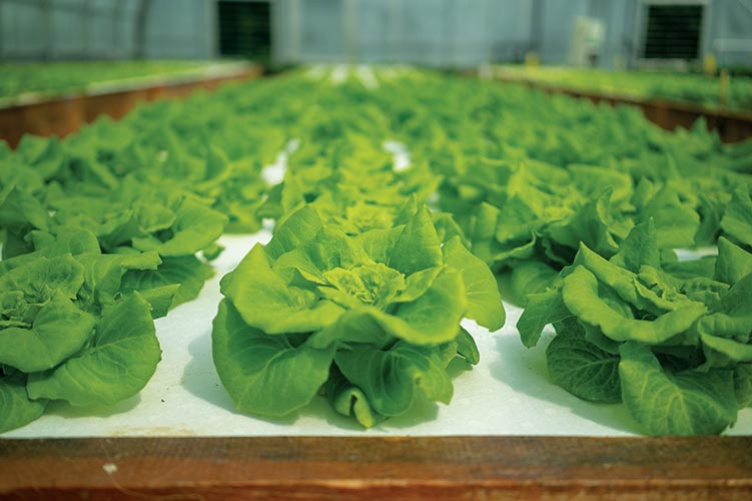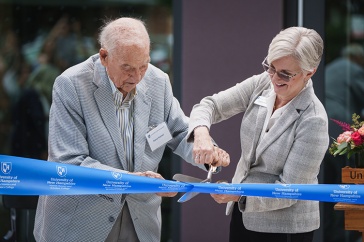
UNH’s new research facility at Kingman Farm aims to provide a model for aquaponic systems that can be used locally and regionally to increase sustainable food production.
There is still magic in food,” says Phil Meldrum ’79. He believes that in the digital age, sitting down to share a meal is a last vestige of connecting to each other on a human level. Twenty-two years ago, Meldrum founded FOODmatch, a producer and importer of Mediterranean specialty foods out of a passion for locally, sustainably and responsibly grown produce.
FOODmatch supplies a broad set of clients, from Fortune-500 grocers and foodservice chains to individuals, with olives and antipasti grown and harvested in traditional ways by independent farmers in the Mediterranean. Not only is the end product superior in taste, says Meldrum, but small-scale agriculture is kinder to the land and important to biodiversity, supports a fair lifestyle for farmers and connects to an ancient system of commerce.
Meldrum sees the same values reflected in the work of New Hampshire Food Alliance (NHFA) and Food Solutions New England (FSNE), interrelated collaborative networks that seek to develop sustainable farming and fishing that could produce 50 percent of the region’s food by 2060 and support local communities.
“Everything can’t be local,” says Meldrum. “But if you can create a market for something based on taste, it can be economically sustainable.”

On a visit to the UNH Durham campus in 2015, Meldrum met Tom Kelly, chief sustainability officer and founding executive director of UNH’s Sustainability Institute. He was struck then by Kelly’s obvious passion for work that aligns with Meldrum’s values and also connects the university to broader regional efforts.
“I wished we’d had five hours to talk,” says Meldrum, who invited Kelly to present at a sustainable food conference in Boston.
Impressed by Kelly’s ability to bring disparate factions together, Meldrum decided to support NHFA and FSNE’s efforts to develop networks of small-scale growers like the ones that supply his company.
“I look at the people behind programs,” Meldrum says of his approach to philanthropy. “When you meet someone like Tom — authentic, passionate and smart and putting so much energy into making a difference — you feel good about supporting them.”
A believer in public education, Meldrum also wants to help UNH stand out from its peers to a generation that is deeply interested in food. “A businessperson looks at any organization and thinks about its assets and points of difference,” he says.
For his money, UNH’s history as a land-grant institution, location — close to nature but not isolated, recent STARS Platinum rating, relevant academic programs and strong Sustainability Institute are powerful differentiators.
Want to make a difference to an area of UNH that matters to you? Find out how.
-
Written By:
Laura Chisholm | Communications and Public Affairs | Laura.Chisholm@unh.edu
















































